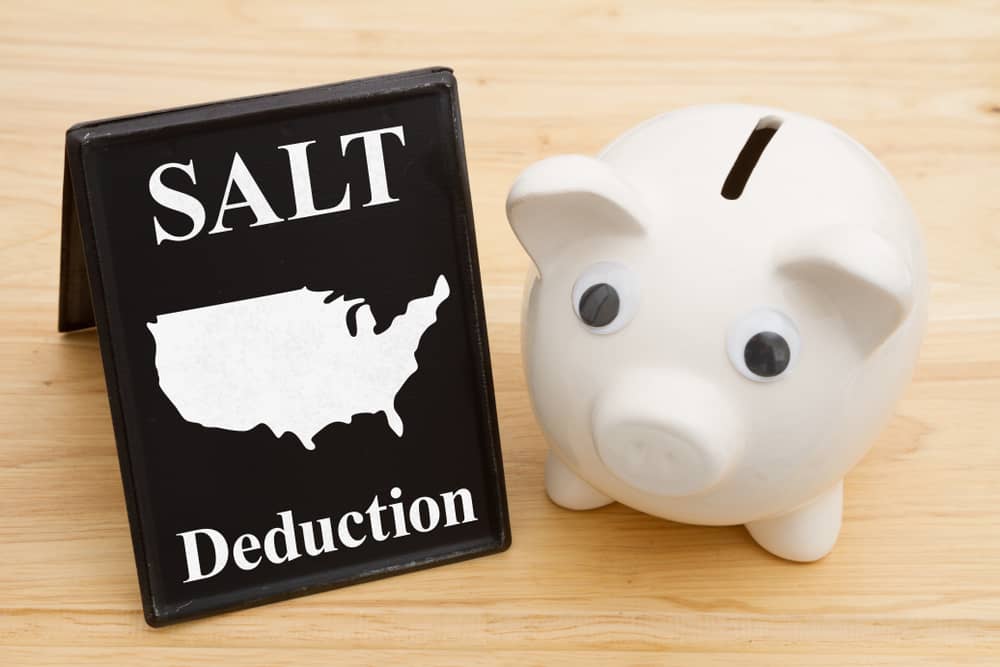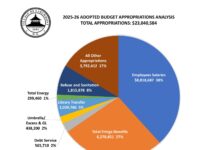
Vaping Ban Also Challenged in Court
By Dan Murphy
Westchester homeowners received bad news last week when a federal judge tossed out a lawsuit aimed at overturning a $10,000 limit placed on state and local tax deductions on federal income taxes. New York State, New Jersey, Connecticut and Maryland sued Federal Treasury Secretary Steven Mnuchin last year to have the tax deduction limit, originally called the Tax Cuts and Jobs Act and now being referred to as the Trump Property Tax Cap, overturned.
But U.S. District Court Judge Paul Oetken rejected the eastern states argument that the new law and deduction limit is unconstitutional because it exceeded Congress’ powers and that it was designed to change their own tax policies.
“The states have cited no constitutional principle that would bar Congress from exercising” its authority “to impose an income tax without a limitless SALT deduction,” Oetken wrote in his opinion.
Gov. Andrew Cuomo said the states who filed suit, including New York, would appeal Oetken’s ruling.
“There is no doubt in my mind that President Trump’s unfair tax policy targets New York and other blue states by funding tax cuts for corporations and the rich on the backs of New Yorkers,” said Cuomo. “New York is already the largest ‘donor state’ in the nation – paying the federal government $36 billion more than we get back every year. The SALT cap takes this gross imbalance and supercharges it, costing New Yorkers another $15 billion each year.”
The TCJA was passed by a Republican Congress and signed by Trump in 2017, without a single democrat vote. Before the new law, taxpayers across the country could write up an unlimited amount of their local property taxes and their state income taxes on their federal returns.
Now only the first $10,000 of a families’ property taxes and state income taxes can be deducted, and Westchester homeowners – who pay the highest property taxes in the nation – are most affected by the Trump Property Tax Cap.
With the average Westchester property tax bill around $18,000, combined with an average state income tax bill of an additional $10,000, the new federal tax law is costing the average Westchester family about $5,000 more in federal taxes per year.
Westchester families with lower incomes are paying less in additional federal taxes under the new code, but wealthier families are paying much more. Some Westchester homeowners with a property tax bill of $50,000 or more, who are earning $250,000 or more in income, are getting clobbered under the new tax laws.
When the new tax code was passed and signed by Trump, Cuomo and many New York elected officials told residents not to worry, that New York would be able to sue to get the new tax code thrown out. Those assurances no longer appear to be realistic.
Oetken acknowledged in his decision that New York residents would pay more in federal taxes and that it was up to states like New York to take steps to help their own residents and taxpayers. But Oetken said in his decision that “the financial burden their taxpayers will experience as a result of the SALT cap is any more severe than the sort of burden that might accompany any other statewide economic disappointment.” And most important, for any appeal, Oetken wrote that there was “no basis for concluding that the SALT cap is unconstitutionally coercive.”
With a successful appeal now unlikely, the only way Westchester homeowners can hope to have TCJA overturned is by electing a Democratic president – and a Democratic U.S. Senate – in 2020.
Until then, 2019 and 2020 will be two more years of county homeowners getting “held up” by Washington, D.C. Even Cuomo admits that the prospects of winning the White House and control of the U.S. Senate next year is a tall order.
“There is no doubt in my mind that President Trump’s unfair tax policy targets New York and other blue states by funding tax cuts for corporations and the rich on the backs of New Yorkers,” said Cuomo. “The bottom line is this policy is unprecedented, unlawful, punitive and politically motivated – and it must be stopped. We disagree with the court’s decision and are evaluating all options including appeal.”
While the blame for the TCJA can be placed on Trump, there is one other national republican that Westchester should point the finger at for their federal tax bill rising significantly – former Speaker of the House Paul Ryan.
Ryan, who retired after the 2018 elections, was the architect of the TCJA, which cut corporate rates and federal income tax rates for the wealthy, but reduced federal revenues, thereby increasing the federal debt.
It was Ryan who for years led the effort to trade a cut in SALT deductions for a reduction in corporate and personal income tax rates. Ryan, and many conservative republicans, always said that if the federal government limited the deductions that residents in states like New York could take on their local and state income taxes, then state governments would be forced to cut their budgets and reduce local and state taxes on their residents.
Obviously, that has not happened, and there is no change in sight to turn back the clock on SALT deductions.
In another case that Westchester residents and New Yorkers are watching, a New York appellate court temporarily stopped a ban on the sale of flavored vaping products in the state. A prohibition on all flavored vaping products was set to take effect this week in New York. The temporary reprieve on banning vaping flavored products will remain in effect at least until Oct. 18, when both parties are due back in court.
The appeal to halt the ban was filed by the Vapor Technology Association.
“We are very pleased with the New York State Appellate Division’s decision, which acknowledges the strength of our claims about the state’s executive overreach, and which preserves the ability of hundreds of small businesses to remain open and continue to serve their adult customers,” said Tony Abboud, executive director of the association.
New York Health Commissioner Howard Zucker commented: “Make no mistake – this is a public health emergency that demands immediate action to help ensure the well-being of our children, and we’re confident that once the court hears our argument they will agree.”
New York’s ban on flavored vaping products comes after other states have put in similar laws. Michigan and Rhode Island have imposed restrictions on vaping sales, and the State of Massachusetts has banned completely the sale of all vaping products for four months.
Massachusetts’ temporary ban has been upheld in federal court, allowing the state to evaluate the recent rise in vaping-related lung injuries. New York has already increased the age from 18 to 21 to purchase vaping products and has taxed vaping products.





